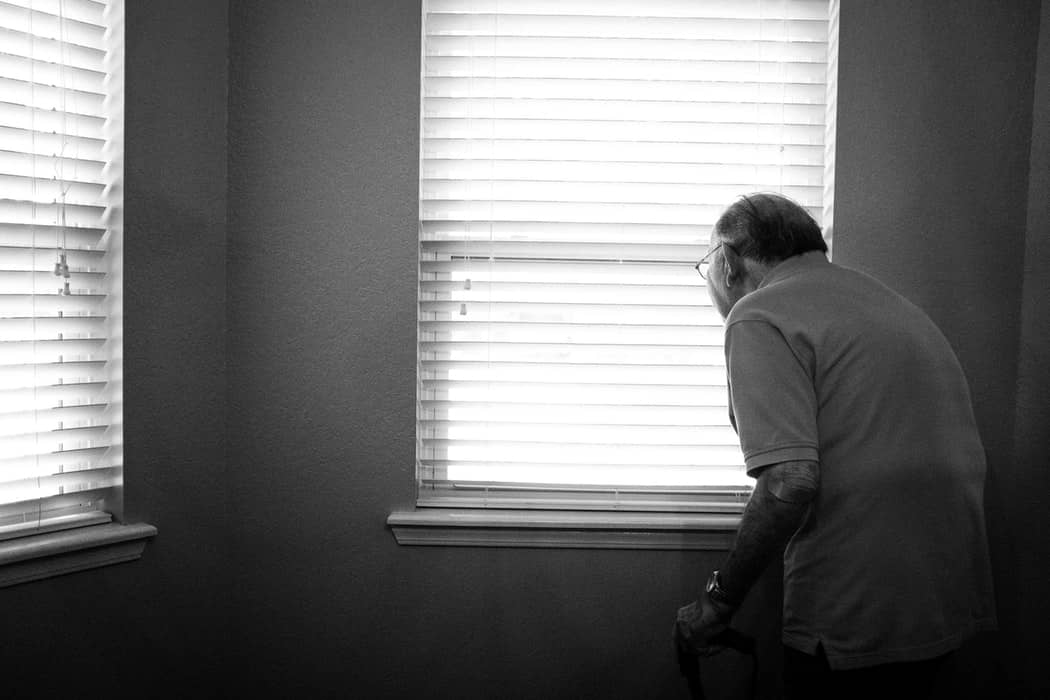How to Care for Your Mental Health as a Caregiver
Caregiving has many rewards such as being there for a loved one in need, personal satisfaction or enhancing personal relationships. However, we understand the stress that comes with caring for another. In America, 40-70% of caregivers show symptoms of depression with approximately a quarter to half of these caregivers meeting the criteria for major depression. To be able to care for others, it is important to remember how to care for your mental health as a caregiver.
Signs of Stress and Anxiety
Caregiver stress is very common and at times caregivers aren’t aware that they have it. According to the National Alliance for Caregiving and AARP, roughly four in 10 family caregivers find their situation highly stressful. As a caregiver, it is so easy to get caught up in caring for someone else that we often forget how to care for ourselves or even spot the signs of stress.
The signs of caregiver stress include:
- Feeling overwhelmed or constantly worried.
- Insomnia.
- Frequent headaches.
- Losing interest in activities you used to enjoy.
- Gaining or losing weight.
- Constant changes in mood.
Too much stress over a long period in time can harm not only your physical health but also your mental health.
Signs of Depression
Most of the time, caregivers often put their health concerns aside in effort to provide the best care for their loved ones or patients which can have a heavy toll on their overall health. Depression is defined as a feeling of severe despondency and dejection.
People experience depression in various ways, so it is important to know the early symptoms of depression to help prevent a more serious depression over time. Here are the most common signs:
- A change in eating habits resulting in weight gain or loss.
- Feeling as though you are not good enough.
- Ongoing physical symptoms that do not respond to treatment. Examples: headache, chronic pain, digestive disorders.
- Becoming easily agitated or angered.
- Overwhelming sadness.
- Thoughts of suicide or death.
If you or someone you know might be facing depression or thoughts of suicide, contact the National Suicide Prevention Lifeline at 1-800-273-8255 or visit the National Help Line at 1-800-662-4357.
5 Ways to Care for Your Mental Health as a Caregiver

For you to adequately care for another, it begins with caring for yourself first. If you feel as though you are suffering from any of the above symptoms or might be worrying that you aren’t taking care of yourself there are a few simple ways to begin caring about your overall health.
Here are a few tips on how to care for your mental health:
- Set personal health goals. – Health begins with making sure you’re providing your body with its basic needs. For example, set goals to create a good sleep routine, exercise, and maintain a healthy diet.
- Limit your alcohol and caffeine intake. – Alcohol and caffeine can cause anxiety and trigger panic attacks. Instead, consider drinking more water and limiting your alcohol and caffeine intake.
- Accept help. – If you are dealing with stress, anxiety, or depression, accepting help may be easier by providing a list of what others can assist you with and let the helper choose what they can do for you. It can be as simple as caring for your loved one or your patient for a day or helping you cook or clean up your space.
- Take time out. – During your break or your day off, take a time out and focus on clearing your headspace. Practice yoga, meditate, listen to music, or research relaxation techniques to help re-center yourself and clear your mind.
- Join a support group. – A support group can offer words of encouragement and advice for times when you are dealing with caregiver stress. Remember other caregivers may be facing the same thing and joining a support group is a great way to overcoming this difficult time and create meaningful relationships.
- Reach out for help. – It is important to reach out for help if you feel you may be facing signs of stress or depression. Find what is comfortable for you whether it is seeing a professional therapist, reaching out to a loved one, or calling any of the National Help Lines listed above.
Each person is unique and may not face the same symptoms as others. If you feel you are stuck in a rut, do not ignore the signs as mental health issues can affect everyone differently. At 24/7 Nursing Care, we are here for you. If you are a caregiver dealing with caregiver stress, please do not hesitate to contact us today at 855-Nurse44 or join our caregiver support group on Facebook.
24/7 Nursing Care places qualified caregivers, companions, and nurses who provide quality care for you or your loved one. There is peace-of-mind knowing that your loved one is safe at home with someone who can provide the best care. If you are interested in a free, at-home consultation, contact us today: For Miami-Dade (786) 518-3622 or Broward (954) 949-1332.
References:
Caregiver health (n.d.) Retrieved February 19, 2020, from https://www.caregiver.org/caregiver-health
Taking Care of Yourself (n.d.) Retrieved February 19, 2020, from https://www.nami.org/Find-Support/Family-Members-and-Caregivers/Taking-Care-of-Yourself





